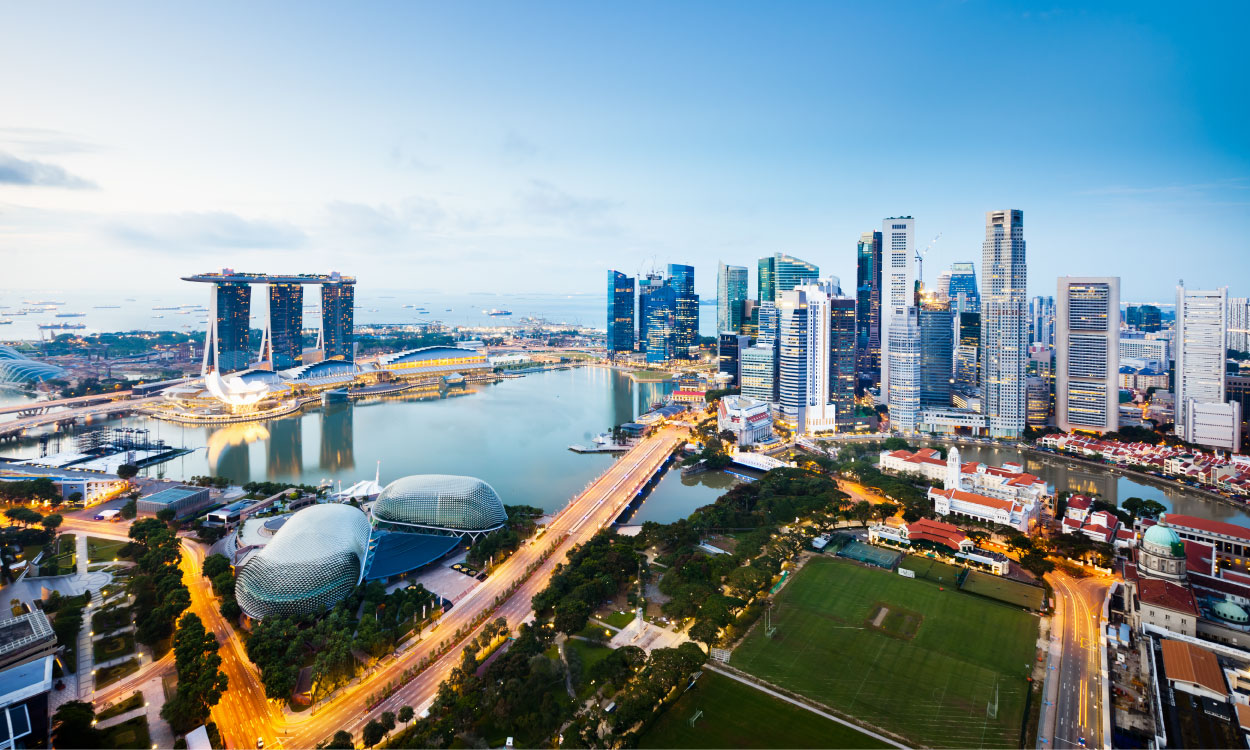Top Tips For Relocating To Singapore
Singapore is home to over 1.5 million expatriates with around 50,000 of those being British. There are various reasons as to why Singapore is a favourable place to relocate to, from the country’s excellent infrastructure, its safety, financial stability, and linguistic diversity.
Whether you are moving from the UK to Singapore alone or with a family, the following are crucial things you should know about this vibrant city before you take the leap to this sunny island.

Culture and Language
Singapore was a British colony and a magnet for foreign immigrants from various parts of the world, (particularly China, India, the Malay Archipelago, and the Middle East) since the 1800s. Which is why today, Singapore is renowned for its cultural and linguistic diversity.
There are four main ethnic groups in Singapore: the Chinese (74.3% of the population), Malay (13.5%), Indians (9%), and Eurasians and others (3.2%). The country has enjoyed racial harmony since it gained independence in 1965 and is applauded as one of the most religiously diverse countries in the world with high inter-religious tolerance and acceptance.
English is the main language of both business and education serving as a lingua franca among diverse ethnic groups. Other languages like Mandarin, Malay, and Tamil are widely spoken among local communities.
Housing Options
Foreigners in Singapore can choose from different types of housing options, ranging from public housing (also known as HDB flats) and private properties to co-living spaces and serviced apartments. Note that foreigners can rent any type of residential housing in Singapore but are subject to regulations if they buy private homes for real estate investment.
Here’s a glance at the various housing options available to expatriates in Singapore:
| HDB Flats | Private Condominiums | Landed Properties | Co-living Spaces | Serviced Apartment | |
| Rental | Yes | Yes | Yes | Yes | Yes |
| Minimum Rental Period | 6 months | 3 months | 3 months | Any | Any |
| Ownership | No | Yes | Subject to approval from the Singapore Land Authority (SLA) | No | No |
While renting is a hassle-free option that many non citizens moving to Singapore choose to go with, many are also attracted to investing and buying property due to Singapore’s economic stability and potential for high capital gains and rental yields.
The average price of a condominium in Singapore is about S$1.9 million for a 1,048 square foot living space. Naturally prices vary depending on location, lease tenure and size, but what’s guaranteed is that most developments in the country are designed and built to meet international standards and comprise modern lifestyle facilities. – Meyer Blue is one such development.
These newer developments offer convenience and luxury within the residential marketplace and have excellent local amenities such as: access to public transportation networks, schools, and retail malls in the Eastern region of Singapore.
A select few developments also offer freehold tenure that ensures perpetual ownership unlike most condominiums in Singapore that hold a 99-year leasehold, the infinite tenure of these properties offers investors excellent investment potential and a wider access to financing.
Schools and Education
The Singapore education system is recognised as one of the best in the world so families looking to relocate can rest assured that their children’s education won’t be impacted. Typically, a year’s calendar is divided into four terms with term holidays that last about a week or a month, similar to the UK.
All public schools and tertiary institutions are taught in English allowing foreign students the ability to seek admission to primary and secondary schools through the Admissions Exercise for International Students (AEIS) or Supplementary Admissions Exercise for International Students (S-AEIS) conducted in Singapore. – For more information refer to the Ministry of Education (MOE) website to find out how to apply for AEIS and the eligibility criteria.
There are also several international schools in Singapore that cater to the expat population.
The majority of them offer three main systems: the American-based system (or the AP (Advanced Placement System), the International Baccalaureate (IB) system, and the English national system. Around 12 international schools currently deliver the English national curriculum which includes the International GCSE and A-Level syllabus.
Expat Healthcare
Singapore has a dual healthcare system consisting of public and private healthcare services. General Practitioner (GP) clinics are widely available throughout Singapore with specialist clinics often located within private hospitals or medical centres making them easily accessible.
Both the public and private healthcare sectors offer high standards of care though the costs can vary. For expats who do not have access to healthcare subsidies from the Singapore government, healthcare can get expensive so this is something to consider.
This is why it is crucial for foreigners who intend to move to Singapore to obtain comprehensive health insurance to cover medical costs, especially for private healthcare services. Some expats even opt for international health insurance plans that provide medical coverage for Singapore, their home country and other countries they may visit.
Summary
Moving from the UK to Singapore may fill you with excitement and anxiety and it’s something that requires careful consideration and meticulous planning but it could be well worth the effort since Singapore consistently ranks high in global indexes for quality of life and promises to deliver a fulfilling experience.
As a first world country with a diverse society and robust public systems for education, housing and healthcare services, most expats would find it easy to adapt to Singapore’s city landscape.

